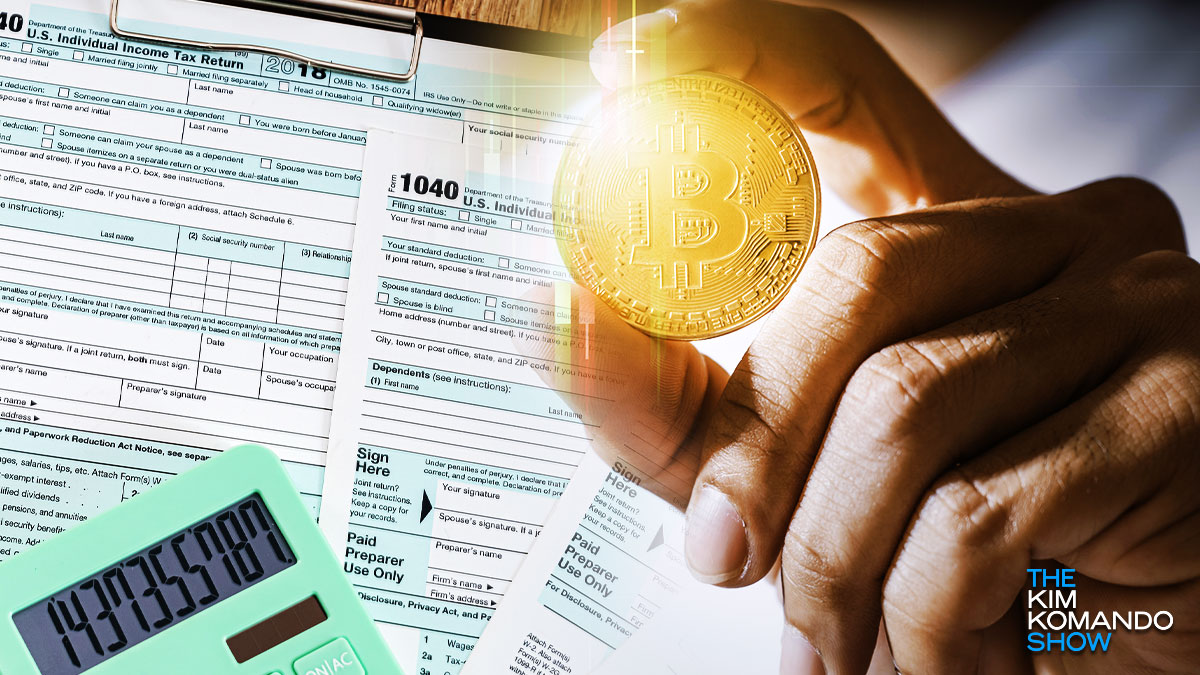Trading in your old phone? Here’s why you need to protect your privacy before handing it over, in 60 seconds.
Be careful how you answer that cryptocurrency question on your tax return

Filing your federal taxes can be a relatively complex endeavor. Thankfully you don’t have to verify your identity through a third party anymore, but other pitfalls can make it difficult.
One such issue can arise from cryptocurrency, and depending on how you used it over the last year, you could find yourself in trouble with the IRS. The various digital currencies have exploded in popularity, and the IRS wants to know if you’ve been trading them.
Read on for the one cryptocurrency question on your tax return that you need to answer correctly.
Here’s the backstory
Your tax return might look similar to previous years, but one added line is crucial for accurate financial declaration. Just below the section for your personal information on Form 1040, Form 1040-SR and Form 1040-NR, there is a question about whether you dealt in crypto.
It reads: “At any time during 2021, did you receive, sell, exchange, or otherwise dispose of any financial interest in any virtual currency?” It might seem like a simple yes or no question, but there can be severe consequences if you aren’t truthful.
“If you check yes, you’re flagging yourself, and the IRS is going to be looking for some sort of capital gain or loss on your Schedule D,” financial analyst Tommy Lucas told CNBC.
How to handle cryptocurrency when filing taxes
The IRS warns that all taxpayers must answer the question, not just those who hold cryptocurrency. However, depending on your situation, there are a few reasons why it should be safe to tick the no box.
According to the IRS, you can check “No” if you merely owned virtual currency at any time in 2021 but didn’t engage in transactions. You can also click “No” if your activities were limited to:
- Holding virtual currency in your wallet or account.
- Transferring virtual currency between your wallets or accounts.
- Purchasing virtual currency using real currency, including purchases using real currency electronic platforms such as PayPal and Venmo.
- Engaging in a combination of holding, transferring, or purchasing virtual currency as described above.
The list below covers the most common transactions in virtual currency that require checking the “Yes” box:
Most dangerous thing you can do if you're new to crypto

Investing in crypto can be exhilarating and scary at the same time. Massive fluctuations in the price of Bitcoin have had many glued to the trading boards. If you invested just $10 in Bitcoin in 2010, that would be worth approximately $10.3 million today.
You can't just factory reset your old phone to sell it
$40 billion
That’s how much market value Do Kwon vaporized in his crypto collapse. He hyped TerraUSD as a stablecoin, then secretly used a trading firm to fake its stability. He could face up to 25 years, but the feds will settle for 12. That’s about one year for every $3.3 billion in lost value.
$737 million
That’s how much Amazon stock Jeff Bezos just cashed out. Fresh off a $50 million Venetian wedding, Bezos is back on the trading floor (well, metaphorically). It’s part of a plan to offload up to 25 million shares by 2026, because what’s a power couple without a little portfolio pruning?
$328,739.18
The amount raised for an 81-year-old waitress. She told a customer she couldn’t afford to stop working, so a kind stranger posted the story on TikTok. Now Betty’s trading in the diner shift for well-earned rest. Her reaction? “I think I better get a financial adviser!” You and me both, Betty.